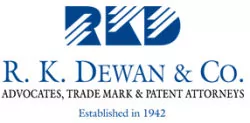In the case of Fourth Estate Public Benefit Corp. v. Wall-Street.com dated March 4, 2019, the US Supreme Court’s clarified its stand on one of the most fundamental and largely used provision of the US Copyright law, i.e. whether suit for infringement can be filed before copyright registration is granted. Fourth Estate is a news organisation which had licensed its works to a news broadcasting website Wall-Street vide a License Agreement. The Agreement required Wall-Street to take down/ remove all of the licensed content before it could be cancelled. With regards to the copyright in the works, Fourth Estate’s application for registration of such copyright was pending at the Register of Copyrights.
The US copyright law entitles a copyright owner to institute a civil action for infringement of its exclusive rights in its creation. The bone of contention in this case was whether grant of registration was a pre-condition for filing suit for infringement or whether applying for registration alone was sufficient. The Court assessed the two approaches put forth by the parties in interpreting the phrase “Registration has been made”. While one interpretation was that the right to sue for infringement arises when an application for registration is made, the other interpretation was that such right arises only when any action is taken upon such application by the Register (read Registrar).
The Court held that a copyright claimant may commence an infringement suit, when registration is granted by the Copyright Office. However, to ensure that the rights of the copyright owner against infringement during the period between application and registration remain protected, it further held that a copyright owner can take action retrospectively, i.e. for such infringement which has taken place even before registration. The Court observed that other provisions of the Copyright Act support its reading of "registration" to mean “action by the Register”.
Hence, though the right is accrued after registration, it can be enforced for a time before such registration is complete. The Court held that “As per equitable principles in IP law, any author gains "exclusive rights" in his/ her work immediately upon the work's creation. If infringement occurs before a copyright owner applies for registration, that owner may eventually recover damages for the past infringement, as well as the infringer's profits.”
Compiled by: Adv. Sachi Kapoor | Concept & Edited by: Dr. Mohan Dewan
The content of this article is intended to provide a general guide to the subject matter. Specialist advice should be sought about your specific circumstances.

